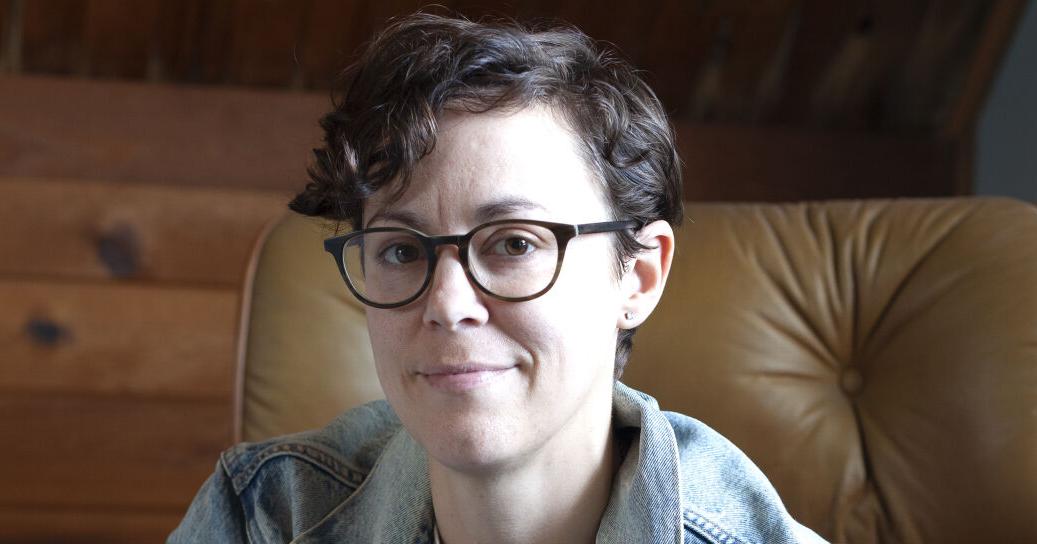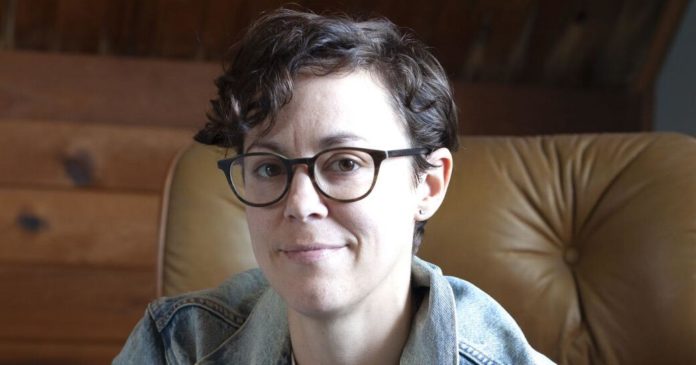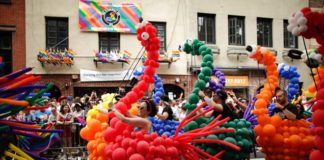
Does a coming-out story ever go as expected? Maybe, for some folks, but Casey Parks has one that goes awry in spectacular fashion.
It’s Easter Sunday; the family is in church. And she can’t contain herself any longer. She confides in her mother that she is gay, and has kissed a girl she likes.
“I couldn’t keep it a secret because it was so much better than kissing a boy,” she said, speaking from her home in Portland, Oregon, her cat Lafayette meowing in the background. “I was scared to tell my mother, but I wanted to tell her because I was so happy.”
Initially, her mom was OK with it, Parks said.
“But then she told me that thinking of me made her want to throw up.”
A few months later, Casey was condemned from the pulpit. At a family dinner on the 4th of July, her mother, Rhonda Jean, flees to the bathroom, crying in fear of losing her job answering phones at the church in West Monroe, Louisiana.
Casey, stunned by the reality of what she’s brought on her family, swears she’ll “date Richard from Blockbuster and go straight.”
But then, Casey’s grandma squeezes into the half-bath and tells Rhonda Jean to get over it. And later, out on the carport, she elaborates, “I grew up across the street from a woman who lived as a man.”
A tantalizing mystery
It’s a crude olive branch, an offer of understanding, and a tantalizing lure of a mystery. Sometimes, looking into another life gives us courage for our own. ”It felt like it was her way of saying, ‘People like you have existed before,’” Parks said. “I already know people like you and that’s fine, and there is a place where people will love you and you will be accepted.”
In “Diary of a Misfit: A Memoir and a Mystery,” Casey Parks, now a Washington Post reporter on family and gender, recounts efforts to document the life of Roy Delois Hudgins, that woman who lived as a man — how he made a life for himself in Delhi, Louisiana, despite his unconventional upbringing and lack of education — and how he lived on in the memory of the place.
Along the way, Parks paints a vivid picture of her own coming of age in small town Louisiana, longing to be free, to live a bigger life somewhere else.
Delhi’s fortunes rose and fell with cotton. “My people on my mother’s side came to pick cotton,” she said. “They were sharecroppers in Frog Island, and as cotton picking was mechanized in the ’40s and ’50s, people lost their job to machines. There are maybe 3,000 people who live there today.”
Along the way, Parks hones her reporting skills, uncomfortable as it makes her to knock on strangers’ doors. But she gets to learn about Roy that way, and not just Roy, but the town and what people thought of him — their admiration for his musical abilities, his stubborn insistence on living life his way.
‘The world should remember’
Parks was looking for a way to make her mark in the world of journalism and thought this story will be it. After attending Millsaps College, she worked at The Jackson Free Press, then The Portland Oregonian, attended Columbia University’s graduate program and moved on to The Washington Post. (In one memorable section, she turned down a job at The New Orleans Times-Picayune.)
Now she makes her home in Portland, Oregon. She’s still pursuing stories like Roy’s, because as she writes, he “was the kind of person the world should remember.”
“Every day, newspapers and magazines chronicle the lives of powerful people, but I’d spent a decade returning to this small town because I believed that regular people deserved the same thing.”
Parks is also looking to make peace with her family, especially her mother, who tangled with drugs and drink over the years.
“I wanted to show them I wasn’t evil,” Parks said.
Rhonda Jean leads Casey to various sources; sometimes she comes through, sometimes she fails in colossal fashion. The women of the family spend hours sitting in the lawn chairs on the carport, smoking and drinking and telling stories.
Totaling the losses
Roy Hudgins writes a series of journals with “misfit” in the title, so it’s no accident that Parks’ book is “Diary of a Misfit” as well.
Being a young lesbian coming of age in the early 2000s in Louisiana was no picnic. Everything from her appearance — short hair, flannel shirts, clunky shoes — to her differences with her family seemed to set her apart.
Another great loss was her religious life, for “Diary of a Misfit” is a spiritual memoir as well.
Raised in a family of evangelical Christians, church life was a joy for young Casey: She attended services frequently, and sang her part loudly.
“Church was fun,” she writes, and the reader can sense her whole heart was in it, as well as what that loss of community meant. “It’s hard to lose an essential piece of yourself,” Parks said. “And people you love.”
“Louisiana scares me,” Parks writes. It is a place where she experienced profound rejection, of course, and extreme homophobia. “But I go back to report as often as I can. I’m 39, but whenever I get there, I feel 18 again.”
Susan Larson hosts The Reading Life on WWNO-FM.








